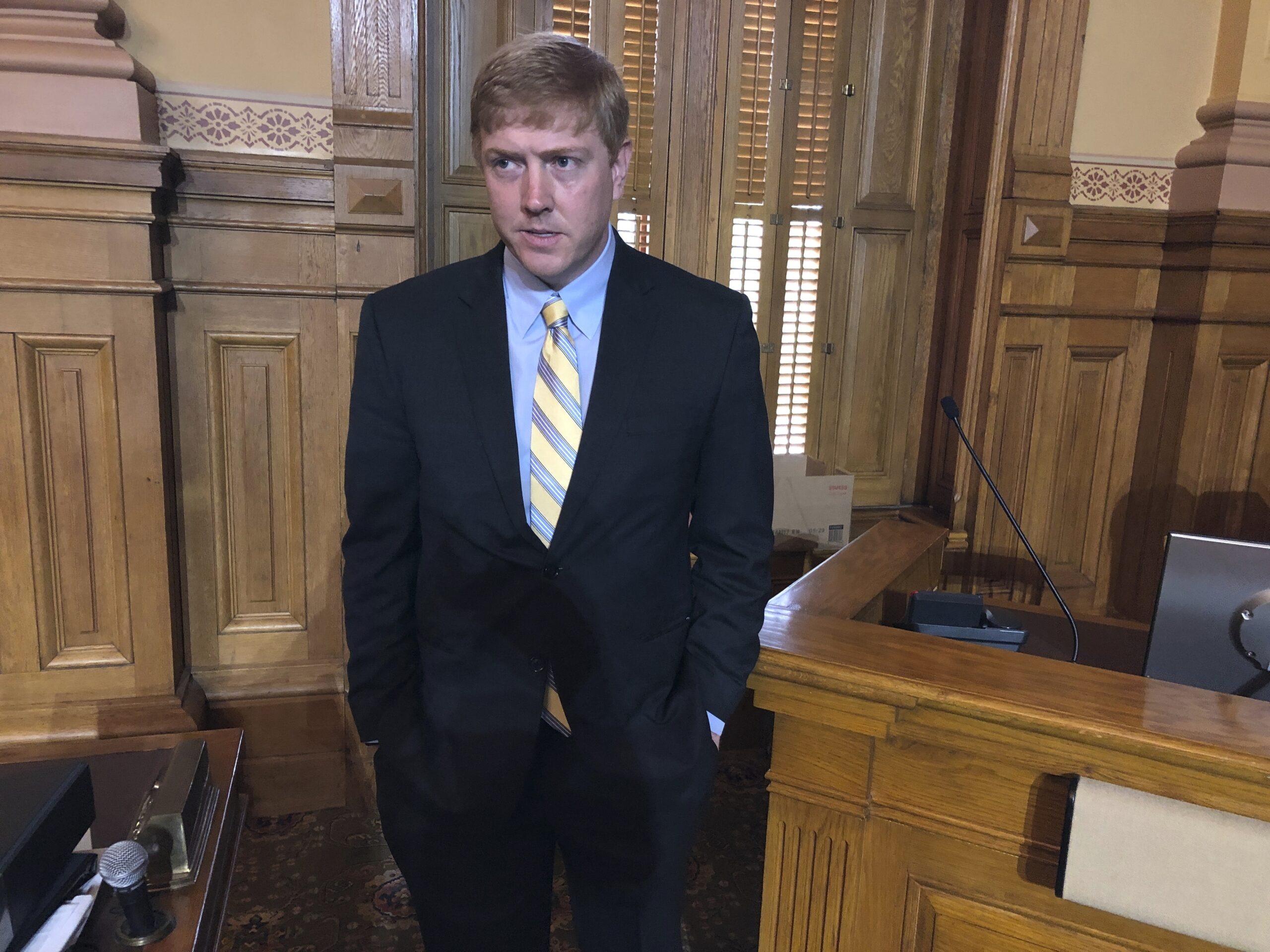State Senate Passes Georgia Budget Changes Aiding K-12 And Health

The Senate voted 54-0 on Tuesday, March 23, to pass House Bill 81, which calls for Georgia to spend $27.3 billion in the year starting July 1. Georgia Senate Appropriations Committee Chairman Blake Tillery, pictured above, said state revenues have come in well above what was expected.
Jeff Amy / AP Photo
An amended state budget that increases spending on K-12 schools and public health passed the Georgia state Senate on Tuesday with a 52-0 vote, racing one step closer to passage.
With Senate changes, House Bill 80 returns to the House, where representatives could agree to Senate changes or demand a conference to work out differences. Legislative leaders have said it’s a priority for the budget to move quickly in case a COVID-19 outbreak forces lawmakers to stop meeting.
The measure spends $26.6 billion in state funds and $15.6 billion more in federal money in the current year ending June 30.
Lawmakers agreed with Gov. Brian Kemp’s plan to add back $567 million to the state’s K-12 school funding formula, which was cut by $950 million last year when lawmakers feared a steeper drop in revenue.
“It’s certainly a lot better position than we were in when we stood here last year,” Tillery said.
Overall, lawmakers cut $2.2 billion last June, or about 10% across the board. Most agencies besides K-12 schools, universities and technical colleges won’t get a substantial boost under the spending plan.
House Minority Leader Gloria Butler, a Stone Mountain Democrat, criticized the spending plan for not doing enough to help vulnerable Georgians, saying Democrats would have liked to have seen more spending for county health departments, a reduction in tax breaks and an increase in tobacco taxes.
“Many Georgia families exist on a wing and a prayer, barely holding it together right now,” Butler said.
The Senate would shift $11 million in bond money to help pay for further computer improvements in the Department of Public Health to track vaccinations and create an electronic appointment system for vaccination appointments. With money the House already added, lawmakers propose adding $27 million to these functions.
“We’ve heard from you and your constituents you’re having difficulty with scheduling,” Tillery said.
Senators also propose more high-level administrative help at the department. Adding to money the House already proposed, lawmakers would add $486,000 to pay for a chief medical officer, deputy commissioner, chief data officer, senior programmer and financial manager.
Senators approved Kemp’s plan to use existing funds to pay for 10% raises for correctional and juvenile detention officers. The Senate also proposed shifting around more than $5 million to increase pay for some state troopers and other Department of Public Safety employees by creating education incentives and new, higher ranks.
Senators added $3 million to subsidize the Georgia World Congress Center in downtown Atlanta and $1.25 million to subsidize the Georgia National Fairgrounds and Agricenter in Perry, bringing the increased subsidy proposed by lawmakers there to $3 million.
Senators added another $1 million to the amount proposed by the House to buy school buses, bringing the total to $39.6 million, enough for a projected 513 buses.
Thursday’s spending plan would also appropriate another $7.5 million to the emergency fund that Kemp controls.








